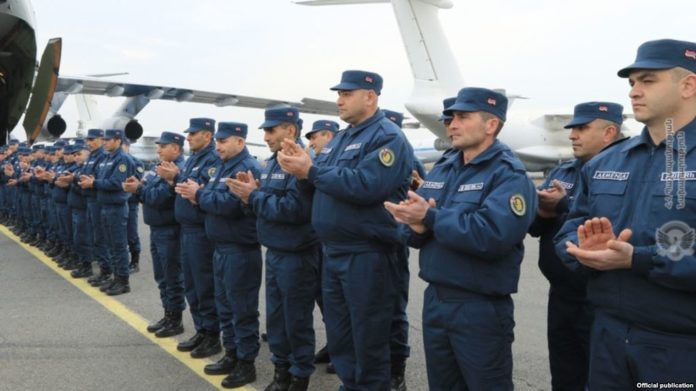WASHINGTON and YEREVAN (Combined Sources) — After a terse reaction by the United States regarding a mission deployed by Armenia to Syria, Armenia’s Foreign Ministry on Wednesday, February 13, emphasized the humanitarian nature of the mission and sought to downplay the concerns expressed by the US State Department.
Armenia announced this month it had sent a team including de-mining experts, medical personnel and security officers who will work in Aleppo to carry out humanitarian activities in the northern city of Aleppo, which had a large ethnic Armenian population before the war.
In a statement, the US State Department and the US Embassy in Armenia said, “We recognize the desire of other nations to respond to the humanitarian situation in Syria, and we share the concerns about protecting religious minorities in the Middle East,” the US State Department said on Wednesday. “However, we do not support any engagement with Syrian military forces, whether that engagement is to provide assistance to civilians or is military in nature.”
“Nor do we support any cooperation between Armenia and Russia for this mission. Russia has partnered with the Assad regime to slaughter civilians and trigger a humanitarian catastrophe. Russia continues to protect the Assad regime and its atrocities on a global stage,” the statement added.
The US embassy provided a copy of the statement to Eurasianet but declined further comment.
Armenian Foreign Ministry spokesperson Anna Naghdalyan said that the US and Armenia, for years, have responded to the humanitarian tragedy that has plagued Syria and the ensuing refugee crisis that has displaced millions in the wake of the war there.










